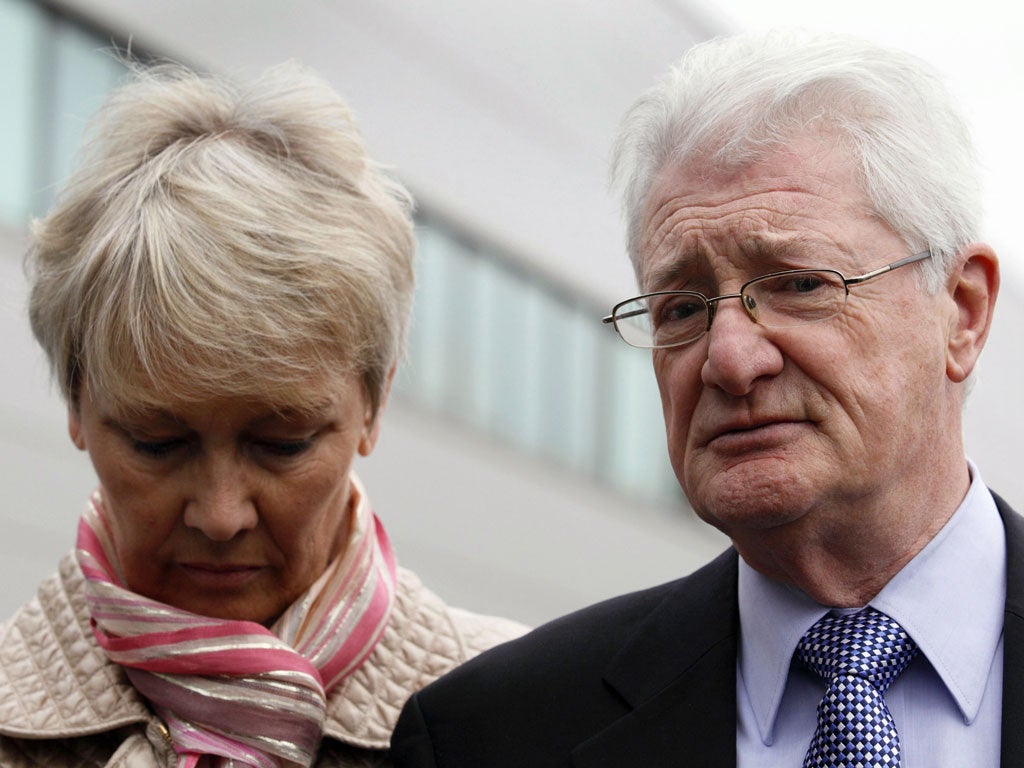Guilty – but coming home a little sooner: extradited Briton Tappin strikes plea deal
Accused British businessman has deeply missed seeing his wife and family

Your support helps us to tell the story
From reproductive rights to climate change to Big Tech, The Independent is on the ground when the story is developing. Whether it's investigating the financials of Elon Musk's pro-Trump PAC or producing our latest documentary, 'The A Word', which shines a light on the American women fighting for reproductive rights, we know how important it is to parse out the facts from the messaging.
At such a critical moment in US history, we need reporters on the ground. Your donation allows us to keep sending journalists to speak to both sides of the story.
The Independent is trusted by Americans across the entire political spectrum. And unlike many other quality news outlets, we choose not to lock Americans out of our reporting and analysis with paywalls. We believe quality journalism should be available to everyone, paid for by those who can afford it.
Your support makes all the difference.British businessman Christopher Tappin could be able to return home much sooner than expected after striking a plea deal with US prosecutors.
The retired Kent shipping agent had always denied charges of conspiring to sell batteries for Iranian missiles, insisting that he thought they were destined for the Netherlands. But today it was announced that he had decided to plead guilty to some of the charges, in the hope of reducing his eventual sentence.
His lawyer told The Independent the decision should come as no surprise, as the odds are so stacked against defendants in the US system that the vast majority opt for a plea agreement.
“From the moment Chris was put on a plane all we ever wanted was his swift and safe return. However upsetting, this is the beginning of that process,” said his wife, Elaine, 62, who suffers from a rare auto-immune disorder, Churg-Strauss syndrome, which means she has been too ill to visit him in the United States for the past five months.
Mr Tappin, 65, will appear in court in El Paso, Texas, on Thursday morning to hear prosecutors set out the terms of his plea bargain. If they are agreed by senior US district judge David Briones, it is likely to be several weeks before he is sentenced, but it is hoped that he will serve a considerably shorter term than the 35 years he could have faced if convicted, and may be allowed to serve his sentence in a British jail.
Robert Gibson, a British associate of Tappin who agreed to co-operate with US authorities at an early stage, was jailed for 24 months after pleading guilty to conspiracy to export defence articles.
After losing his two-year fight against extradition to the US, Tappin was deported in February and spent two months, largely in solitary confinement, within a federal prison in New Mexico.
In April he was released under strict bail conditions, which require him to wear an ankle bracelet as well as a GPS tracker and observe a curfew, but he spoke recently of how deeply he missed his wife, two children and grandson.
“I just need to get home to them,” he said. “I used to feel OK, that I have a strong case and didn’t need to worry too much about it. But the nearer it gets, the more I worry.”
Today his UK lawyer Karen Todner said: “The odds are so heavily stacked against a defendant who chooses to plead not guilty and then is subsequently found guilty that the vast majority of people facing trial in the US opt to take a plea agreement. Therefore this decision should come as no surprise.”
Ms Todner, who also represented computer hacker Gary McKinnon in his successful 10-year fight against extradition, said 98 per cent of people who enter the US justice system enter into a plea agreement. “I hope that following this decision to enter into a plea agreement Mr Tappin will be able to return to the UK as soon as possible to rejoin his family.”
Mr Tappin, who retired in 2008 from the freighting agency he founded, was charged following an investigation in which agents from US Immigration and Customs Enforcement (ICE) offered Mr Gibson a deal in 2006 to sell five specialised Eagle Pitcher batteries for a total of $25,000 (£16,000).
Join our commenting forum
Join thought-provoking conversations, follow other Independent readers and see their replies
Comments